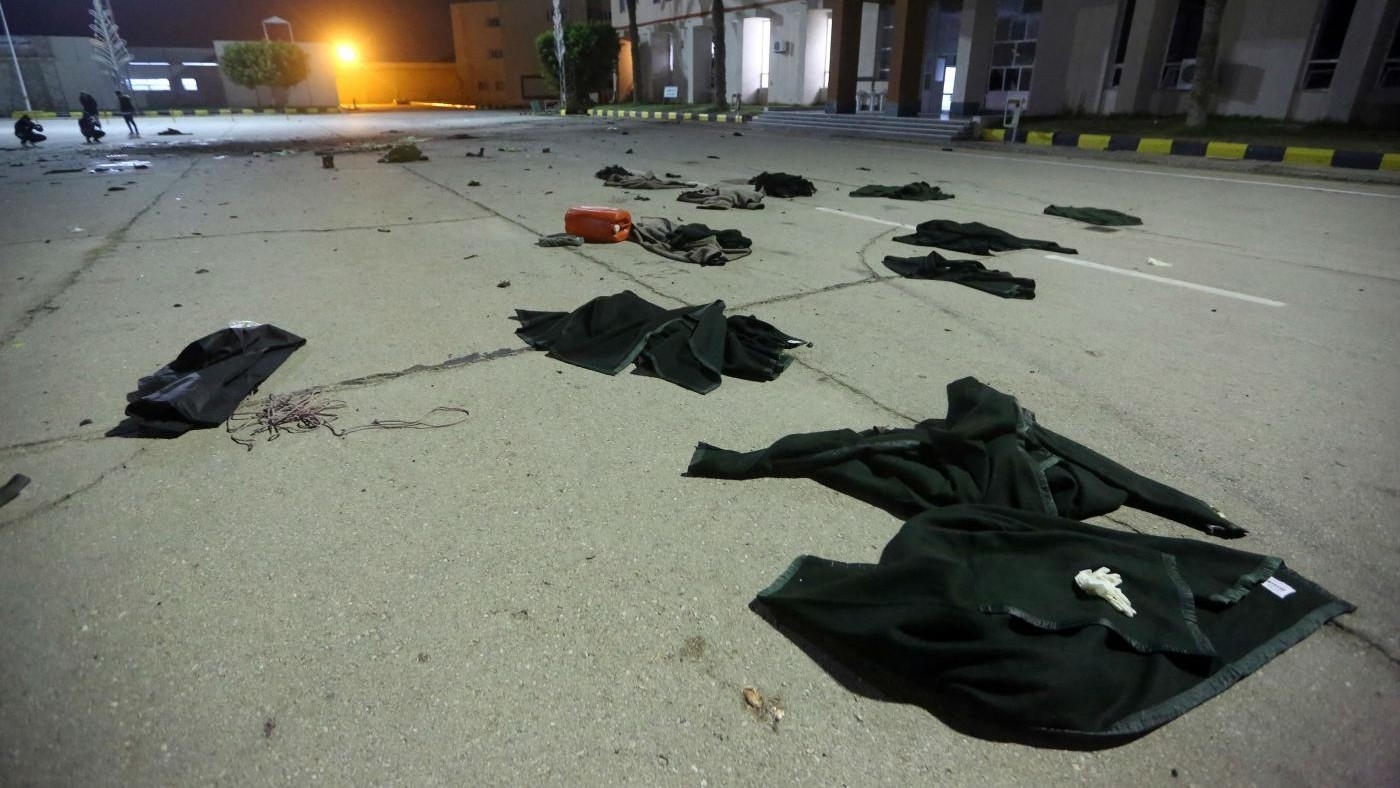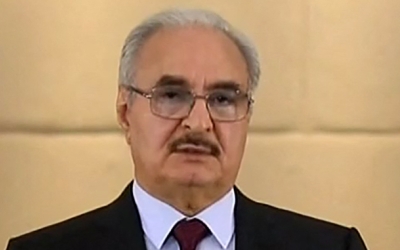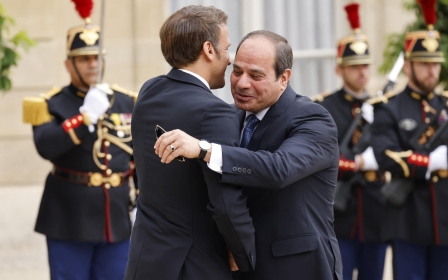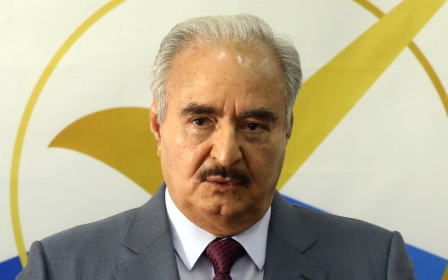Libya: Khalifa Haftar faces new lawsuit over Tripoli academy drone attack

The relatives of three military cadets killed in a 2020 drone strike in Tripoli, Libya, have filed a lawsuit in a US court against Libyan eastern commander Khalifa Haftar, blaming him for the attack that left 26 cadets dead and more than a dozen others wounded.
The legal filing seen by Middle East Eye states that Haftar "intentionally directed, knew, or reasonably should have known that his targets were not legitimate military targets and that his forces engaged in a pattern and practice of gross human rights abuses".
"On January 4, 2020, a group of around fifty young unarmed cadets were attacked while marching at a military college in Tripoli, the capital of Libya. As the cadets stopped to tum their procession to the left, a missile slammed into the center of the crowd and exploded. Twenty-six of the cadets perished," the lawsuit says.
"The airstrike that killed them was launched under Hifter's authority."
Haftar's Libyan National Army (LNA) quickly denied responsibility for the strike, insisting the military academy was marked as out of bounds for artillery and air forces.
However, a BBC investigation revealed that a Chinese-made Wing Loong II drone, supplied to Haftar's forces by the United Arab Emirates, was responsible.
"This egregious crime happened in January of 2020 and caused the deaths of 26 students as well as permanent injury to about 18 of them. It shook the world," Esam Omeish, president of the Libyan American Alliance, a lead consultant on the lawsuit, said during a press conference held via Zoom on Thursday afternoon.
"The world has taken condemnation of it. But unfortunately, nobody was brought into justice. Nobody was held accountable for this crime."
Haftar's legal woes
The lawsuit comes just a month after a US district judge issued a default judgment against Haftar, saying he was liable for war crimes after a years-long legal battle with multiple families who say the Libyan commander was responsible for the death and torture of their relatives.
Haftar had tried, unsuccessfully, to have the lawsuit thrown out under the guise of immunity as a head of state.
The recent court ruling has serious potential ramifications both inside Libya and around the world for Haftar, who has for years been vying to become the leader of the North African country.
'No matter how big you are, no matter how powerful you are, you're going to have your day in court'
- Mongi Dhaouadi, Libyan American Alliance
The cases against Haftar could create diplomatic issues for him, especially with his role in Libya's relationship with Washington. It also creates a precedent for other victims of Libya's civil war, or of Haftar's 2019 assault on Tripoli, to come forward with similar lawsuits.
Just like the other legal battle by Libyan families against Haftar, the lawsuit filed on Thursday similarly uses the Torture Victim Prevention Act of 1991, a law that allows non-US citizens to seek compensation from individuals acting in an official capacity for any foreign nation.
"We will pursue every legal avenue that we can, and that the law allows us to get justice to these people. No matter how big you are, no matter how powerful you are, you're going to have your day in court," Mongi Dhaouadi, executive director of the Libyan American Alliance, said during Thursday's press conference.
A former CIA asset and US citizen, Haftar returned to Libya following the country's 2011 uprising and served in the internationally recognised government until 2014, when civil war broke out in the country.
In 2019, he mounted a 14-month campaign to take control of the capital, Tripoli. Fighting soon devolved into a proxy conflict with his Libyan National Army (LNA) receiving support from Russia, the United Arab Emirates, Egypt, Chadian and Sudanese fighters, as well as other mercenary groups.
Haftar was eventually pushed back after Turkey intervened by providing fighters, combat drones and military equipment to support the government in Tripoli.
Following a ceasefire in October 2020 and the establishment of a unity government, the country was headed towards elections in December 2021, but polls were delayed and Libya continues to remain divided politically.
Middle East Eye delivers independent and unrivalled coverage and analysis of the Middle East, North Africa and beyond. To learn more about republishing this content and the associated fees, please fill out this form. More about MEE can be found here.





